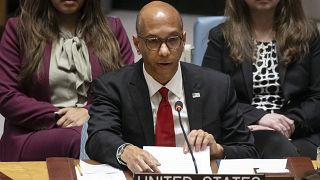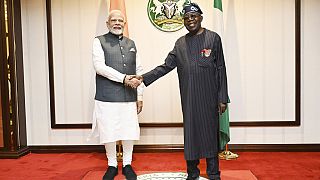Nigeria
Nigeria hopes to conclude the sale of a $1 billion Eurobond by the end of the first quarter of 2017.According to vice President Yemi Osinbajo the country seeks to make its foreign exchange market more flexible.
The government began the process of appointing banks for the sale of the Eurobond in September.
Authorities say they want to issue the bond by the end of the year but are yet to announce a lender to lead the sale.
“The process is on, the process is on. We hope that at the latest between the end of the year and the first quarter of next year, we will begin to see all that whole process concluded,” said Osinbajo.
He said the severe loss of petro-dollars had caused “serious” foreign exchange shortages and had been worsened by attacks on its oil pipelines and export terminals.
The government had wanted to issue the Eurobond to help plug a gap in its record of 19.9 billion U.S. dollars budgets this year, in addition to tapping concessionary loans from the World Bank and China as its oil revenues fell.
Osinbajo also said his office was working with the central bank to make the foreign exchange market more flexible and more reflective of actual demand and supply.
The regulator in June officially ended its policy of pegging, or fixing, the naira’s exchange rate at 197 per dollar to let the currency float freely. But the exchange rate has since been stuck at 305 to 315 on the official market due to dollar shortages, while on the black market the naira is changing hands at 470 per dollar.
“some point we were losing almost 1 million barrel per day, which roughly translated to 60 percent of oil revenue, so there has been a significant shortfall in our foreign exchange revenue and that honestly affected the availability of the dollar for those who are doing business and who always will want to take out fees or capital one way or the other through the central bank,” he added.
Nigeria's VP says hopes to seal $1 bln Eurobond sale by end of Q1 https://t.co/SximRIEkae pic.twitter.com/uywqeeNBkA
— CNBC Africa (@cnbcafrica) November 30, 2016
Nigeria’s crude production, which was 2.1 million barrels per day at the start of 2016, fell by around a third in the summer following series of attacks by Niger Delta militants who want a greater share of the country’s energy wealth to go to the impoverished southern oil-producing region.





![Africa's hight cost of climate change [Business Africa]](https://static.euronews.com/articles/stories/08/77/73/84/320x180_cmsv2_065e40c7-90d8-5143-b8da-c4885db015dc-8777384.jpg)






02:24
Zimbabweans forced to use US dollar in absence of new currency ZiG
Go to video
Egypt increases fuel prices following depreciation of local currency
01:11
Algeria's black market for foreign currency underlines its economic woes
01:08
Kenya announces an end to G2G oil supply deal
00:54
Dangote group cooperating with financial crimes agency, says no accusations of wrongdoing
Go to video
Dollar starts 2024 with gains on yen and euro, bitcoin above $45,000